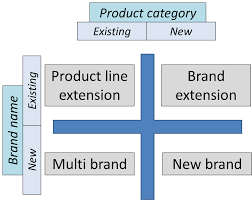The Importance of Brand Development
Brand development is a crucial aspect of any business strategy. It goes beyond just creating a logo or a catchy slogan; it is about shaping the identity and perception of your company in the minds of consumers. A strong brand can differentiate you from competitors, build trust with customers, and ultimately drive long-term success.
Building Recognition and Trust
Consistent branding across all touchpoints helps customers recognise and remember your company. When consumers see your logo, colours, or messaging repeatedly, they begin to associate them with your products or services. This familiarity breeds trust and loyalty, making customers more likely to choose your brand over others.
Creating Emotional Connections
A well-developed brand has the power to evoke emotions and connect with consumers on a deeper level. By defining your brand values and personality, you can resonate with your target audience’s beliefs and aspirations. This emotional connection can lead to stronger customer relationships and increased brand advocacy.
Driving Business Growth
Effective brand development can drive business growth by attracting new customers and retaining existing ones. A compelling brand story and identity can set you apart in a crowded marketplace, helping you stand out from competitors. This differentiation can lead to increased sales, market share, and overall business success.
Adapting to Change
As markets evolve and consumer preferences shift, brands must also adapt to stay relevant. Brand development is an ongoing process that requires continuous monitoring and adjustment. By staying attuned to market trends and consumer feedback, you can ensure that your brand remains current and resonates with your target audience.
In conclusion, brand development is not just about creating a logo or visual identity; it is about crafting a compelling story that resonates with consumers. By investing in building a strong brand, businesses can create lasting relationships with customers, differentiate themselves in the market, and drive long-term growth.
Six Essential Tips for Effective Brand Development in the UK
- Define your brand’s unique value proposition.
- Create a strong visual identity with a memorable logo and consistent branding elements.
- Consistently communicate your brand message across all marketing channels.
- Build relationships with your target audience to create brand loyalty.
- Monitor and adapt to market trends to stay relevant and competitive.
- Seek feedback from customers to continuously improve and refine your brand.
Define your brand’s unique value proposition.
To establish a strong brand, it is essential to define your brand’s unique value proposition. This involves identifying what sets your products or services apart from competitors and articulating the specific benefits that customers can expect when choosing your brand. By clearly defining your value proposition, you can communicate a compelling reason for consumers to engage with your brand, ultimately building trust, loyalty, and differentiation in the marketplace.
Create a strong visual identity with a memorable logo and consistent branding elements.
Creating a strong visual identity with a memorable logo and consistent branding elements is essential for effective brand development. A well-designed logo serves as the face of your brand, instantly recognisable and conveying your company’s values and personality. Consistency in branding elements such as colours, fonts, and imagery across all platforms helps to reinforce brand recognition and build trust with customers. By investing in a cohesive visual identity, businesses can establish a strong presence in the market and leave a lasting impression on their target audience.
Consistently communicate your brand message across all marketing channels.
Consistently communicating your brand message across all marketing channels is essential for effective brand development. By maintaining a cohesive and unified message across platforms such as social media, advertising, and website content, you reinforce brand recognition and build trust with your audience. This consistency helps to establish a strong brand identity and ensures that customers receive a clear and coherent message about your values, products, and services. By aligning your messaging across all channels, you create a seamless brand experience that resonates with consumers and reinforces your brand’s positioning in the market.
Build relationships with your target audience to create brand loyalty.
Building relationships with your target audience is a fundamental aspect of brand development that can foster long-lasting brand loyalty. By engaging with customers on a personal level, understanding their needs and preferences, and consistently delivering value, businesses can create strong emotional connections that go beyond mere transactions. This relationship-building approach not only enhances customer trust and satisfaction but also encourages repeat business, positive word-of-mouth referrals, and ultimately, a loyal customer base that advocates for the brand.
Monitor and adapt to market trends to stay relevant and competitive.
To stay relevant and competitive in today’s dynamic business landscape, it is essential to monitor and adapt to market trends as part of your brand development strategy. By keeping a close eye on industry shifts, consumer behaviours, and emerging technologies, you can proactively adjust your brand positioning and offerings to meet evolving customer needs. This agile approach not only helps you stay ahead of the competition but also ensures that your brand remains fresh, engaging, and aligned with current market demands.
Seek feedback from customers to continuously improve and refine your brand.
Seeking feedback from customers is a valuable tip in brand development as it provides insights into how your brand is perceived and experienced. By listening to customer feedback, businesses can identify areas for improvement, refine their messaging, and better align their brand with customer expectations. This continuous feedback loop not only helps in strengthening customer relationships but also ensures that the brand remains relevant and competitive in a constantly evolving market landscape.


Leave a Reply